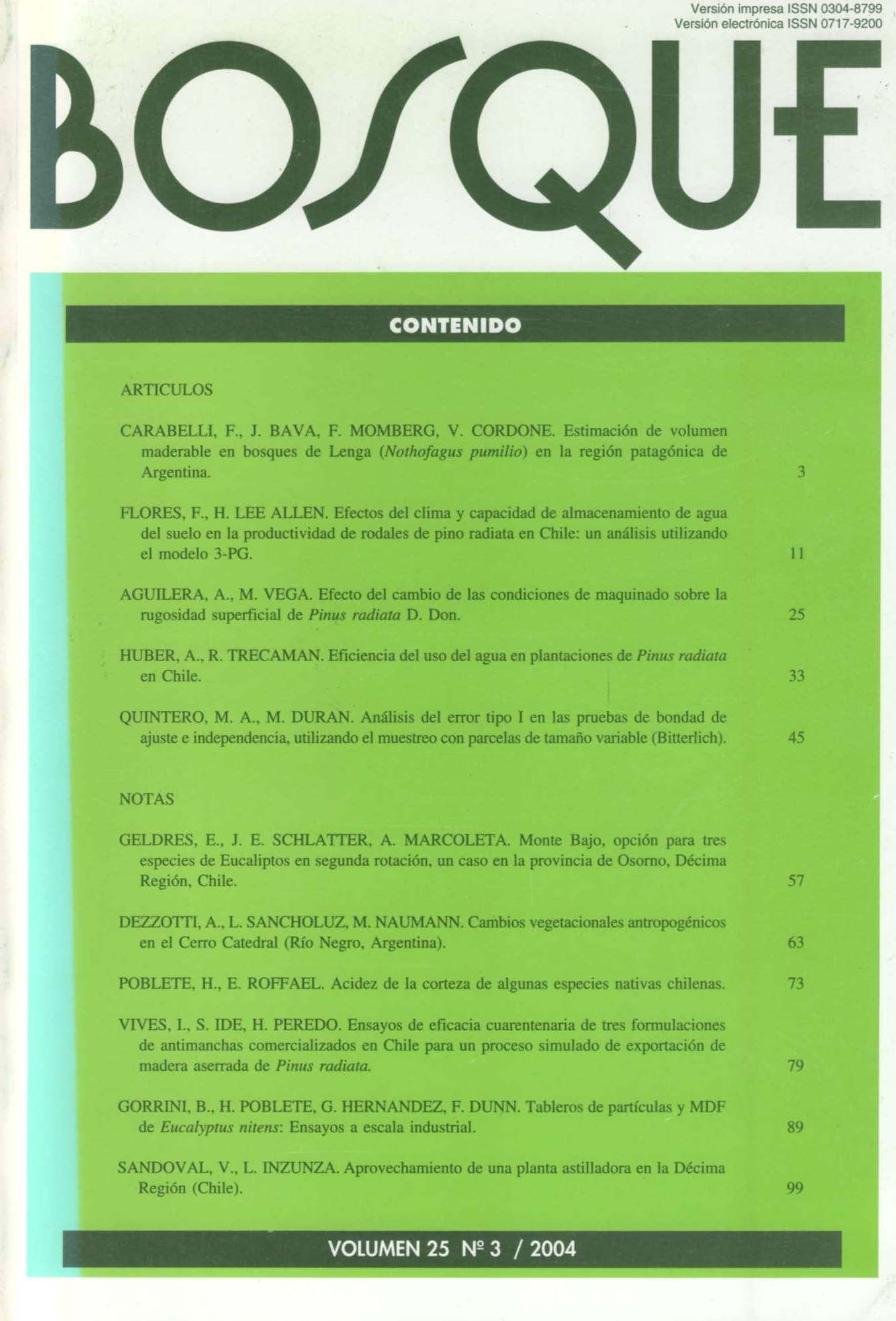Analysis of the Type I error in goodness of fit and independence tests, using variable radius plot sampling (Bitterlich)
Main Article Content
Abstract
The Type I error for different goodness of fit and independence tests applied to data obtained from variable radius plot sampling (Bitterlich sampling) was studied. Five tests were evaluated: 1. the chi-square tests of Pearson, 2. Pearson considered with inclusion probabilities, 3. Wald, 4.Rao-Scott with first-order correction, and 5. Rao-Scott with second-order correction. Data obtained from both a plantation and from a natural forest were used. For different experimental conditions, a program that simulates variable radius plot sampling was used to estimate the Type I error of the goodness of fit and independence tests, applying the Monte Carlo method. The results of the investigation demonstrate that the chi-square tests of Pearson for goodness of fit and independence, which are commonly used techniques, register a distortion of the Type I error when compared with the nominal Type I error value (α=0.05). The goodness of fit and independence test that gave the best results was the second-order correction Rao-Scott method.

